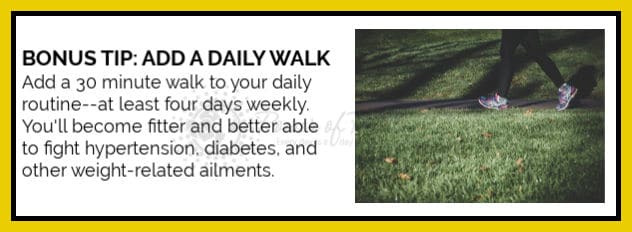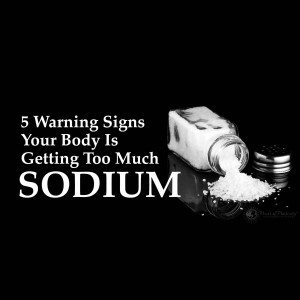Are you struggling to maintain normal blood pressure?
Your blood pressure (also referred to as BP) is the force in which your blood is pushing against the walls of your blood vessels. Sometimes, situations will arise where someone will have BP which is too low or too high. This can cause issues for all systems in your body and cause severe medical issues.
High BP is called hypertension, while low BP is called hypotension. Hypertension occurs when the BP in your arteries is higher than the normal range, and the opposite is the case for those with hypotension.
Since BP affects all systems in your body, it is important to try to regulate it as much as possible. It has been proven that the following situations can cause abnormal BP:
- Certain foods can cause an increase or decrease in BP.
- Gaining weight can cause an increase.
- Losing weight can cause a decrease.
What Happens When You Don’t Have Normal Blood Pressure
Normal blood pressure is around 120/80. If your BP is abnormal for any reason, there are side effects that can be life-threatening.
Side effects of high BP:
- Hardening of your arteries
- Stroke
- Kidney disease
- Heart failure
- Facial flushing
- Dizziness
Side effects of low BP:
- Dizziness or feeling lightheaded
- Nausea or vomiting
- Fainting
- Dehydration
- Overall weakness
- Inability to concentrate
- Blurry vision
- Cold, pale, or clammy skin
- Rapid or shallow breathing
- Fatigue or always feeling exhausted
- Depression
12 Foods to Eat for Normal Blood Pressure
1. Skim or 1% milk
A source of calcium that is low in fat, skim or 1% milk is the perfect drink to help lower BP.
2. Yogurt or Greek yogurt
Eating at least five servings of yogurt is said to lessen your risk of hypertension by 20%. This is because it provides nearly half of the calcium you need and almost a quarter of your required magnesium intake. It provides around 18% of your potassium intake, as well.
3. Lean meat, turkey, and chicken (no skin)
This contains a nice portion of the magnesium and potassium you need each day with much less fat than other options such as red meat. Plus, the added protein will keep your muscles (including the heart) strong. That makes this one a real winner!
4. Cheese that is low in fat and low in salt
Whole fat cheeses contain too much fat to aid in maintaining or achieving a normal BP. So instead, consume cheeses that are low-fat and low-sodium varieties.
5. Fruit
Bananas are a great source of potassium, which is a key nutrient for having normal BP. Berries such as blueberries, strawberries, and raspberries contain flavonoids, a compound that has been thought to prevent or reverse hypertension.
Mangoes are another fruit to eat for normal BP, as it contains fiber and beta-carotene, two nutrients that can lower BP. Many other fruits are effective, as well.
6. Vegetables
Bell peppers contain large amounts of vitamin C which improves BP. Carrots also contain vitamin C, and they also contain beta-carotene. Even better, spinach contains vitamin C, beta-carotene, and fiber.
Most other vegetables are good for lowering BP, as well, as long as they are not canned. Fresh or frozen is the way to go in order to avoid preservatives and sodium.
7. Pasta
While pasta noodles are a good food to eat for normal BP, you will have to be careful of the ingredients of the sauces you put on top. Bear in mind, though, that pasta is high in carbohydrates. Thus, overeating can add pounds that further complicate your health. Enjoy in moderation.
8. Potatoes
Potassium and magnesium are key nutrients found in potatoes, along with high amounts of fiber. This allows blood vessels to relax in order to control your BP.
Just like with pasta, you still have to be careful of what you put on your potatoes. Some seasonings or toppings may cause hypertension.
9. Seeds that have not been salted
Think of seeds like pumpkin, fenugreek, or sunflower seeds.
10. Leafy greens
Romaine lettuce, arugula, kale, turnip greens, collard greens, spinach, and other leafy greens help lower your BP because their potassium content helps filter sodium out in the urine.
11. Pistachios
A good way to decrease BP is by eating pistachios because they reduce your heart rate and relax any tightening of your blood vessels.
12. Olive oil
Containing polyphenols, olive oil is a good source of healthy fat that can help reduce your BP.
13 Foods to Avoid for Normal Blood Pressure
1. Butter or margarine
Both are full of sodium and fat, leading contributors of high BP.
2. Meats with lots of fat
Full of saturated fat and sodium, fatty meats can lead to hypertension. The red meat especially can contribute to clogged arteries, putting you at a greater risk of heart disease and strokes.
3. Canned soups
If you’re like me, you probably thought that canned soups were at least a little healthy. Quite the opposite is true, however, as the extremely high sodium content in each can of condensed soup can cause many health problems.
4. Salad dressing
You could use more than your daily recommended amount of sodium in one salad if you use a little extra salad dressing.
5. Dairy products made with whole milk
Whole milk contains over 100 mg of sodium in each serving, and the whole fat leads to weight gain. Both sodium consumption and fat content contribute to hypertension.
6. Salty snacks
Processed foods and snacks covered in salt have an enormous amount of sodium. Avoiding these completely is your best bet.
7. Lunchmeat
Lunchmeat (aka deli meat or cold cut meat) is normally preserved using salt, making the salt content extremely high in each serving.
8. Bacon and sausage
Being mostly fat and having high amounts of sodium and calories, bacon and sausage are both pretty unhealthy for you despite the belief that they are a healthy breakfast choice.
9. Table salt
Avoid adding extra salt to anything that you eat. Adding just a little bit of salt to your food can shoot your intake up more than you realize. Most of the foods we consume already contains salt, anyway, so adding more might be unnecessary.
10. Condiments
Ketchup and soy sauce are two huge causes of hypertension, and most other condiments contain a high amount of sodium, as well.
11. Bread
This includes bagels, rolls, tortilla shells, English muffins, and sandwich bread. All of these have a high amount of salt and if you choose to then add lunch meat to your bread, you are well over (or at least close to) the limit you should follow for the day.
12. Pickles
In order to make pickles, they must soak in a salt bath, absorbing every bit of sodium possible.
13. Alcohol
Consuming alcohol can lessen the effects of BP medication, causing your already abnormal BP to worsen. Large amounts of alcohol consumption on a regular basis can lead to BP problems for a previously healthy person, so it is wise to stick to moderate consumption of alcohol to stay on the safe side.
The Problem With Salt and Hypertension When You’re Striving for Normal Blood Pressure
Salt contains sodium, an ingredient that causes your body to hold extra water. When this happens you not only become bloated, but you also run the risk of your BP getting too high. The extra water your body is holding on to causes stress on your blood vessels and your heart.
Other Causes of Abnormal BP
It is important to note that food and drinks are not the only causes of abnormal BP. While a person’s diet is often the cause of their BP issues, the problem may be caused by other factors such as pregnancy, loss of blood, medications, heart conditions, endocrine issues, infection, allergic reactions, and other medical conditions.
Likewise, the cause of high blood pressure could possibly be stress, genetics, old age, smoking, thyroid disorders, or many other conditions. Only after you have sought medical attention for abnormal BP should you assume the problem is with your diet. It wise, however, to follow a low-sodium diet as the American Heart Association suggests that you should only consume 1,500 mg of sodium each day.
 Final Thoughts Selecting the Best Foods for Normal Blood Pressure
Final Thoughts Selecting the Best Foods for Normal Blood Pressure
Maintaining normal blood pressure is important in all stages of life. Hypertension can cause many serious health problems including heart disease and stroke. Hypotension, on the other hand, can cause fatigue, depression, lightheadedness, and many other issues.
While it is important to seek medical advice for the cause and treatment options for any abnormal BP issue you are having, changing your diet could be a huge help in achieving and maintaining normal levels. Furthermore, if you wish to prevent yourself from ever having a BP issue, following these guidelines ahead of time will make that goal achievable.


















